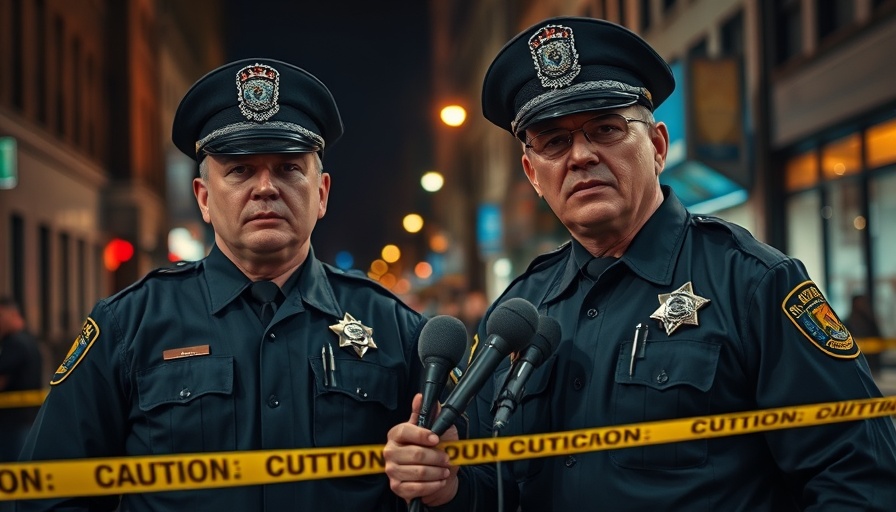
A New Era of Policing: The Path Forward for Chief O'Hara
As Minneapolis Police Chief Brian O'Hara holds on to hope amidst a challenging climate for law enforcement, he stands with a current personnel count of 260 patrol officers. This figure represents a significant reduction from previous years, yet O'Hara remains optimistic about revitalizing community trust in the police department.
Understanding the Decline: Contextualizing Police Resources
Statistics show a notable decline in police forces across the United States, reflecting a wider phenomenon influenced by increased scrutiny and calls for reform. Factors such as officer morale, community relations, and mental health crises are contributing to recruitment challenges within many departments. Chief O'Hara's commitment to transparency and policies aimed at rebuilding public trust might serve as a countermeasure to attrition.
Building Trust Through Community Engagement
Public trust, once eroded, is difficult to rebuild, yet it is essential for effective policing. Chief O'Hara, along with Mayor Jacob Frey, recognizes that engaging with the community is pivotal. Initiatives to foster community policing efforts, where officers work closely with residents, can enhance relationships and promote a shared sense of security. Enhancements in community engagement tools, such as social media platforms and public forums, may also bridge the gap between officers and citizens.
Leveraging Technology in Law Enforcement
In this era of digital transformation, the implementation of police technology, including body cameras and data analytics, plays a pivotal role in both enhancing officer safety and accountability. The use of AI in policing is also emerging as a tool that can support crime prevention strategies and improve decision-making through data-driven insights.
Addressing Officer Wellness and Retention
Officer wellness is crucial for maintaining a capable force. With increasing instances of burnout and stress among officers, Chief O'Hara might consider extending wellness programs that provide mental health support. By investing in the well-being of officers, departments can reduce turnover, ensuring that experienced officers remain on the force to serve their communities effectively.
Future Perspectives: Is Reform Possible?
The outlook for police departments is challenging yet filled with opportunities for reform. O'Hara's leadership and the city's investment in police training can set new standards in public safety. With a balanced approach to innovation and community needs, the Minneapolis Police Department could emerge as a model for others, showcasing effective practices in law enforcement policies and community engagement.
As we navigate this complex landscape, it is imperative for law enforcement agencies, policymakers, and the community to come together. The challenges noted demand careful attention and collaborative solutions focused on justice, transparency, and the protection of all citizens.
In conclusion, the path forward for the Minneapolis Police Department relies heavily on innovative policing strategies, improved officer support systems, and enhanced community engagement initiatives. Only through a commitment to restoring public trust and adapting to the evolving demands of public safety can a sustainable model for modern policing be achieved.
 Add Row
Add Row  Add
Add 

 Add Element
Add Element 


Write A Comment